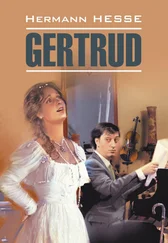Knecht’s departure from Eschholz marked the end of an era in his life. If hitherto he had lived a happy childhood, in a willing subordination and harmony almost without problems, there now began a period of struggle, development, and complex difficulties. He was about seventeen years old when he was informed of his impending transfer. A number of his classmates received the same announcement, and for a short while there was no more important question among the elect, and none more discussed, than the place to which each of them would be transplanted. In keeping with tradition, they were told only a few days before their departure, and between the graduation ceremony and departure there were several days of vacation.
During this vacation something splendid happened to Knecht. The Music Master proposed he take a walking trip and visit him, spending a few days as his guest. That was a great and rare honor. Early one morning Knecht set out with a fellow graduate — for he was still considered an Eschholz pupil, and at this level boys were not allowed to travel alone. They tramped toward the forest and the mountains, and when after three hours of steady climbing through shady woods they reached a treeless summit, they saw far below them, already small and easy to grasp as a whole, their Eschholz, recognizable even at this distance by the dark mass of the five giant trees, the quadrangle with its segments of lawn and sparkling pools, the tall schoolhouse, the service buildings, the village, the famous grove of ash trees from which the school took its name. The two youths stood still, looking down. A good many of us cherish the memory of this lovely view; it was then not very different from the way it looks today, for the buildings were rebuilt after the great fire, and three of the five tall trees survived the blaze. They saw their school lying below them, their home for many years, to which they would soon be bidding good-by, and both of them felt their hearts contract at the sight.
“I think I’ve never before really seen how beautiful it is,” Joseph’s companion said. “But I suppose it’s because I’m seeing it for the first time as something I must leave and say farewell to.”
“That’s exactly it,” Knecht said. “You’re right, I feel the same way. But even though we are goihg away, we won’t after all be leaving Eschholz. Only the ones who have gone away forever have really left it, like Otto, for instance, who could make up such funny bits of Latin doggerel, or Charlemagne, who could swim so long under water, and the others. They really said farewell and broke away. It’s a long time since I’ve thought about them, but now they come back to me. Laugh at me if you like, but in spite of everything there’s something impressive to me about those apostates, just as there is a grandeur about the fallen angel Lucifer. Perhaps they did the wrong thing, or rather, undoubtedly they did the wrong thing, but all the same they did something, accomplished something; they ventured a leap, and that took courage. We others have been hardworking and patient and reasonable, but we haven’t done anything, we haven’t taken any leaps.”
“I don’t know,” his companion said. “Many of them neither did anything nor ventured anything; they simply fooled around until they were dismissed. But maybe I don’t quite understand you. What do you mean about leaping?”
“I mean being able to take a plunge, to take things seriously, to — well, that’s just it, to leap. I wouldn’t want to leap back to my former home and my former life; it doesn’t attract me and I’ve almost forgotten it. But I do wish that if ever the time comes and it proves to be necessary, that I too will be able to free myself and leap, only not backward into something inferior, but forward and into something higher.”
“Well, that is what we are headed for. Eschholz was one step; the next will be higher, and finally the Order awaits us.”
“Yes, but that isn’t what I meant. Let’s move on, amice ; walking is so great, it will cheer me up again. We’ve really given ourselves a case of the dumps.”
This mood and those words, which his classmate recorded, already sound the note which prevailed during the stormy period of Knecht’s adolescence.
The hikers tramped for two days before they reached the Music Master’s current home, Monteport, high in the mountains, where the Master lived in the former monastery, giving a course for conductors. Knecht’s classmate was lodged in the guest house, while Knecht himself was assigned a small cell in the Magister’s apartment. He had barely unpacked his knapsack and washed when his host came in. The venerable man shook hands with the boy, sat down with a small sigh, and for a few minutes closed his eyes, as was his habit when he was very tired. Then, looking up with a friendly smile, he said: “Forgive me; I am not a very good host. You have just come from a long hike and must be tired, and to tell the truth so am I — my day is somewhat overcrowded — but if you are not yet ready for bed, I should like to have an hour with you in my study. You will be staying here two days, and tomorrow both you and your classmate will be dining with me, but unfortunately my time is so limited, and we must somehow manage to save the few hours I need for you. So shall we begin right away?”
He led Knecht into a large vaulted cell empty of furniture but for an old piano and two chairs. They sat down in the chairs.
“You will soon be entering another stage,” the Master said. “There you will learn all sorts of new things, some of them very pleasant. Probably you’ll also begin dabbling in the Glass Bead Game before long. All that is very fine and important, but one thing is more important than anything else: you are going to learn meditation there. Supposedly all the students learn it, but one can’t go checking up on them. I want you to learn it properly and well, just as well as music; then everything else will follow of its own accord. Therefore I’d like to give you the first two or three lessons myself; that was the purpose of my invitation. So today and tomorrow and the day after tomorrow let us try to meditate for an hour each day, and moreover on music. You will be given a glass of milk now, so that hunger and thirst do not disturb you; supper will be brought to us later.”
He rapped on the door, and a glass of milk was brought in.
“Drink slowly, slowly,” he admonished. “Take your time, and do not speak.”
Knecht drank his cool milk very slowly. Opposite him, the dear man sat with his eyes closed again. His face looked very old, but friendly; it was full of peace, and he was smiling to himself, as though he had stepped down into his own thoughts like a tired man into a footbath. Tranquility streamed from him; Knecht felt it, and himself grew calmer.
Now the Magister turned on his chair and placed his hands on the piano. He played a theme, and carried it forward with variations; it seemed to be a piece by some Italian master. He instructed his guest to imagine the progress of the music as a dance, a continuous series of balancing exercises, a succession of smaller or larger steps from the middle of an axis of symmetry, and to focus his mind entirely on the figure which these steps formed. He played the bars once more, silently reflected on them, played them again, then sat quite still, hands on his knees, eyes half closed, without the slightest movement, repeating and contemplating the music within himself. His pupil, too, listened within himself, saw fragments of lines of notes before him, saw something moving, something stepping, dancing, and hovering, and tried to perceive and read the movement as if it were the curves in the line of a bird’s flight. The pattern grew confused and he lost it; he had to begin over again; for a moment his concentration left him and he was in a void. He looked around and saw the Master’s still, abstracted face floating palely in the twilight, found his way back again to that mental space he had drifted out of. He heard the music sounding in it again, saw it striding along, saw it inscribing the line of its movement, and followed in his mind the dancing feet of the invisible dancers…
Читать дальше












